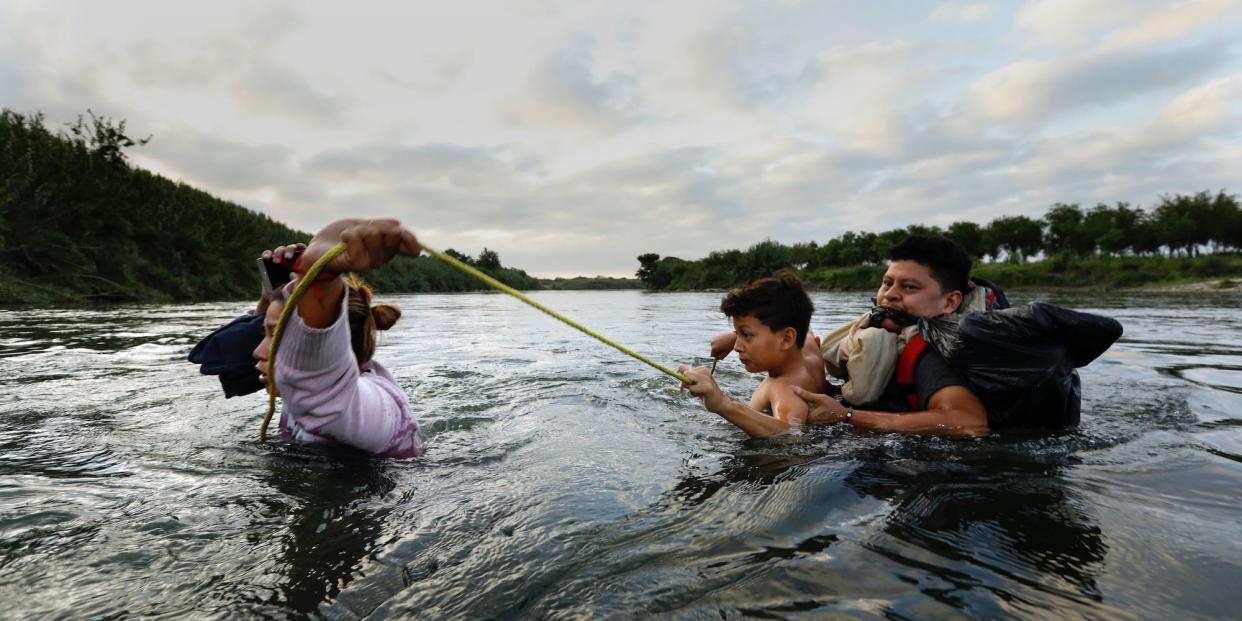The Trump administration is reportedly considering a floating wall to block river crossings along the US-Mexico border

The federal government posted a solicitation online for market research related to a floating border wall that would prevent swimmers from crossing waterways along the US-Mexico border.
The Washington Post was first to report on the solicitation, which specifically seeks designs that would "impede incursions via swimming, or via unassisted climb-over in water, yet be easily repaired in the event of breaches."
The design would also need to include an anti-dive mesh or a similar component to prevent underwater divers from crossing, and it would need an anchoring system that could withstand "up to 25 metric tons."
The federal government is considering a floating wall to place in waterways along the US-Mexico border that would block swimmers and prevent them from climbing over or diving under, according to an online government solicitation first reported on by The Washington Post.
The online posting sought "market research related to the procurement of a Buoy Barrier System" to be used along the country's southern border "in a marine environment."
The soliciation indicated that it was "a market survey for information only, to be used for preliminary planning purposes," and not a solicitation for proposals.
In a list of specifications, the solicitation said the federal government was seeking out a design that "must impede incursions via swimming, or via unassisted climb-over in water, yet be easily repaired in the event of breaches."

The design would also need to include an anti-dive mesh or a similar component to prevent underwater divers from crossing, and it would need an anchoring system that could withstand "up to 25 metric tons."
A Customs and Border Protection spokesman told The Post in a statement that Border Patrol is looking for ways to "impede and deny illicit activity in waterways, including but not limited to rivers, lakes, and ponds, where use of traditional land-based barriers are not practical."
The spokesman also said the barriers would be used to discourage migrants from crossing the waterways, noting that "waterways along the southwest border present a danger to migrants attempting to illegally cross the border."
As The Post reported, migrants frequently risk their lives to swim across the Rio Grande River and reach the US shore.
In one widely viewed 2019 photograph that encapsulated the country's migrant crisis, the face-down bodies of a Salvadoran migrant and his 1-year-old daughter could be seen on the bank of the Rio Grande.
The pair had drowned while crossing the river, after they were unable to present themselves to US border officials and request asylum.
The Post reported that the barriers could also pose environmental risks, particularly with flood debris or other underwater detritus that could get clogged in the anti-dive netting.
Read more:
The Trump administration is deporting migrant children while the country is focused on the pandemic
Government workers say they warned that Trump's family separations traumatized children but were dismissed as 'a broken record'Chaos reigns at ICE detention centers amid fear that coronavirus is 'spreading like wildfire'
Read the original article on Insider


